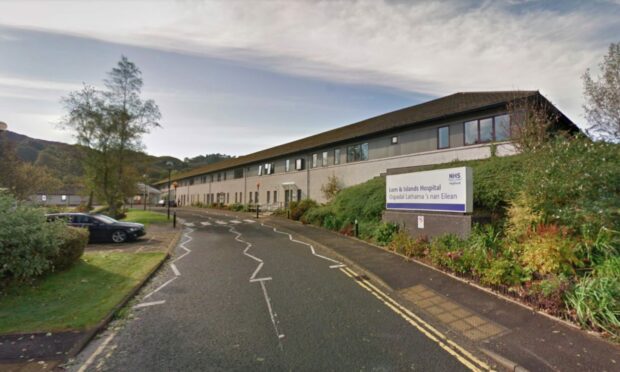A Highland hospital has been ordered to make urgent improvements after junior doctors said poor staffing levels and training was leaving patients at risk, a damning report has revealed.
An investigation was launched after GP trainees lodged complaints with officials about their shifts at Lorn and Islands Hospital in Oban.
The three medics, who were on placements at the hospital, raised several serious concerns about training at the NHS Highland facility.
Similar concerns were also raised by a whistleblower.
It was highlighted that staff felt “out of their depth” and were prevented from attending their training sessions as there wasn’t enough staff cover on the wards.
Trainees said there was a lack of general support at a senior level and described staffing in the hospital as being “as worse as it had ever been”.
Report flagged ‘serious’ concerns about shifts, supervision and safety
NHS Education for Scotland (NES), the body responsible for making sure the NHS complies with training standards, has now ordered urgent improvements.
In a new report seen by the P&J, the organisation raised “serious concerns” about the training in place for staff.
It added: “A number of these have implications for the quality and safety of care.”
The investigation team found that Lorn and Islands Hospital did not meet several General Medical Council standards set for all UK medical facilities.
The investigation highlighted that:
- Trainees frequently worked extra hours – sometimes up to six hours after their shifts.
- Junior doctors spent days trying to recover from their additional workload.
- Trainees reported having a lot of responsibility with little supervision or feedback.
- Senior nurses didn’t have the skills to properly supervise newly-qualified doctors during medical emergencies.
- Trainee doctors struggled to reach on-call-from-home consultants for out-of-house advice caused by late rota changes not being shared properly.
- Trainees said consultants were very busy and there was a lot of reliance on locum doctors.
Medic speaks out: ‘Patients have a right to be worried’
One medic, who has spoken to the Press and Journal anonymously, said the hospital had been operating for several years with junior doctors who weren’t being correctly supervised out-of-hours.
They added: “Rotas are also changed frequently so sometimes it’s the incorrect consultant listed on call.”
They said locum staff working on-call shifts from home were often on the rota for several consecutive nights.
As a result, they warned that junior doctors might feel reluctant to call for advice when they know they’ve been working hard and for long hours.
And they said: “I’m really apprehensive about if I have a heart attack or a stroke, or any medical condition, who is there to supervise the juniors?
“Who is there to make sure my care goes right?
“So yes, patients have a right to be worried.”
What will happen now?
Earlier this week we revealed that NHS Highland’s medical director, Dr Boyd Peters, plans to visit the Oban hospital.
NHS Highland said staff shortages had caused the problems and stressed that the launch of a new recruitment campaign is hoped to attract new employees.
An action plan is in place to address the other concerns.
A spokesman said the health board “accepted the findings in full”, acknowledging that training and peer support for junior staff “has not been as robust as we would have liked”.
More health news…
Patients in Highlands to be offered surgery elsewhere to cut waiting times



Conversation